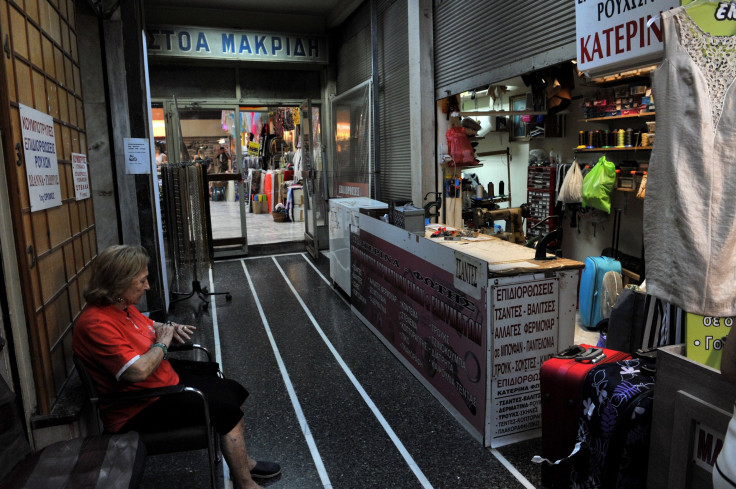Greek Debt Crisis: Latest Greece Deal Would Open Stores On Sunday, Encourage Retail Sales Specials, Open ‘Restricted Professions’

Greeks have long cherished the notion that Sunday is a day for worship, family, leisure -- almost anything but work. But that would change under a three-year bailout deal reached Monday between Greece and other eurozone members: Athens would be required to lift rules that make Sunday mostly a day of rest.
Lifting the ban on Sunday commerce is just one way the European Union and International Monetary Fund are demanding that Greece reform basic commercial activity in an attempt to jumpstart the country's struggling economy. European leaders also want Greece to end restrictive licensing procedures that place limits on the number of companies that produce basic commodities, such as milk. They are also asking for the removal of rules that make it difficult for Greeks to enter certain “restricted professions” -- from lawyers to TV technicians.
The reforms are controversial, especially measures that encourage workers to extend their weekly hours on the job. Greeks already work longer hours than their European neighbors. In 2014, the average Greek worked 44.2 hours a week, compared with 41.5 for a German worker and 41.2 hours in the rest of the eurozone.
Reforms that invite large multinationals to muscle out local businesses are also unpopular among Greeks. Greece's creditors also want the heavily indebted nation to ease restrictions on retail sales and promotional events. Under Greece's current rules, merchants are allowed to run sales specials just twice per year. In the summer, they start in mid-July and run through the end of August. The winter sales take place in mid-January and run to the end of February.
Many of the proposed commercial market reforms are aimed at encouraging job growth. According to a Euro Summit statement issued Sunday, Greece must “adopt more ambitious product market reforms ... including Sunday trade, sales periods, pharmacy ownership, [and] milk and bakeries.”
Proponents say the measures would spur job creation. Encouraging Sunday commerce, for example, could create 300,000 new jobs, according to officials of Greek’s center-right New Democracy Party.
“Greek product markets remain among the most strictly regulated in the OECD [Organisation for Economic Co-operation and Development] area, hindering competition and preventing the price adjustments needed to support the recovery,” said a November 2013 OECD review on the Greek economic competitiveness.
But there’s plenty of resistance to measures that would increase the Greek work week or entice multinationals to come in and use economies of scale to walk over small businesses. And even if Greek Prime Minister Alexis Tsipras succeeds in convincing Greece's Parliament later this week to approve the bailout deal -- which would provide Athens with up to $96 billion in return for pension cuts, tax increases and other requirements -- the people may not be so compliant.
When Athens introduced a law last year allowing Sunday shopping in 10 tourist regions, Greek Orthodox Church leaders called it heretical and members of the Federation of Greek Private Employees said it was an infringement on workers’ rights. Exactly a year ago, shops instituted a 24-hour strike in response to the law. Since then, a drive to extend the law across the country has been hampered.
© Copyright IBTimes 2024. All rights reserved.












